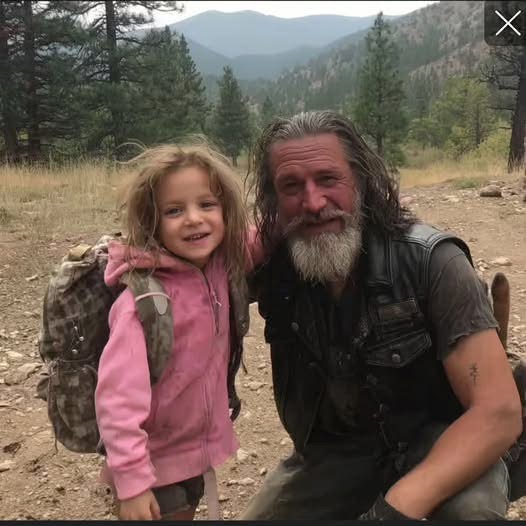The Wrong Turn That Saved a Life
Taylor “Ghost” Morrison, a 64-year-old biker, wasn’t supposed to be on that Colorado back road.
His GPS had failed, and he’d taken a wrong turn — one that led him to spot faint handprints on a rock face.
At the bottom of a ravine, Ghost found 8-year-old Tina David, alive but weak, beside her mother’s body.
Dr. Linda David had died shielding her daughter after their car crashed.
For six days, search teams and helicopters had missed the site.
Ghost, riding at just the right speed and angle, saw what no one else had.
Carrying Tina up the ravine nearly broke him, but as he told her: “I’m just a biker who got lost.”
At the hospital, Tina clung to Ghost’s jacket, calling him her “angel.”
Her grandmother later said, “You were that faith answered.”
Despite his own grief — his son Danny, a Marine, had died years earlier — Ghost stayed, reading to Tina, helping her heal, and honoring Linda’s sacrifice: “That’s not just a mother’s love. That’s a warrior’s sacrifice.”
The bond only deepened. Tina began motocross, telling Ghost, “When I’m on a bike, I feel close to Mommy.”
He replied, “It’s what Danny would do.” Three years later, Tina became an advocate for search reform, and the David-Morrison Protocol now ensures bikers are used in hard-to-reach searches.
Ghost officially adopted Tina, with her tearful words: “You saved me.” His reply was simple: “No, kiddo. We saved each other.”
Now, every Sunday, they ride together — Tina on her junior bike, Ghost on his Harley — watching the roads for signs others might miss.
“Sometimes,” Tina says, “angels wear leather and ride Harleys. And sometimes, a wrong turn is exactly where you’re supposed to be.”

